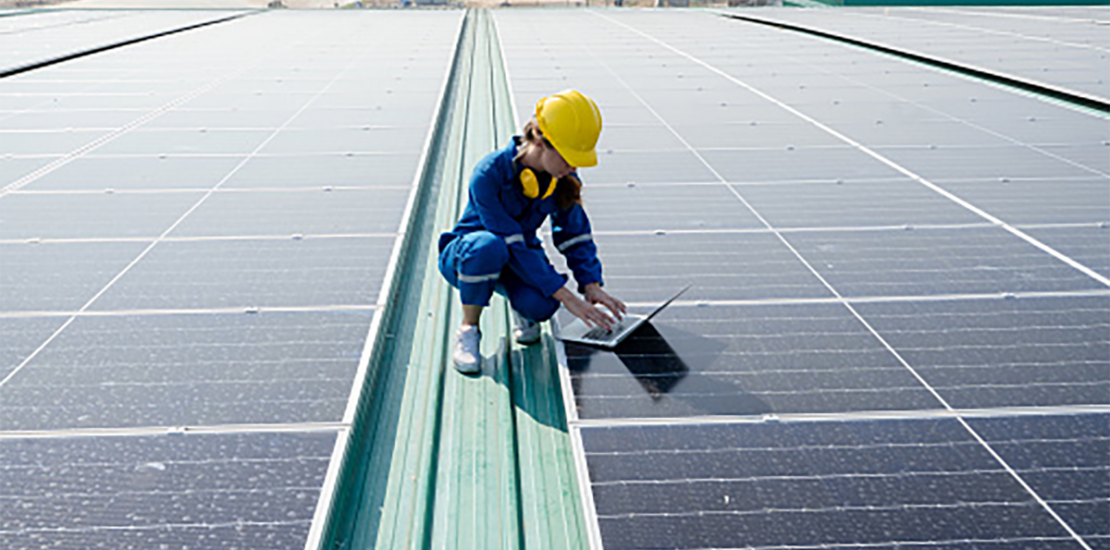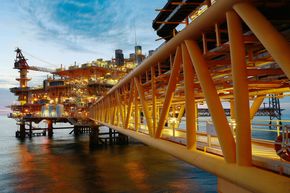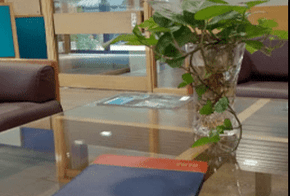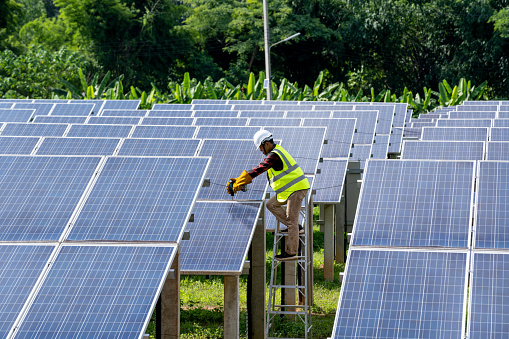Is Your Building Safe For Solar Panel Installation?
- August 30, 2022
- Posted by: Velosi Author
- Categories: Civil, Engineering, Insights

Is Your Building Safe For Solar Panel Installation?
As the summer weather approaches and record-breaking heat waves in many parts of the country – it’s impossible to ignore the sun’s power. The sun gets toughest this time of the year. Many adopt the sun’s power approach by installing solar panels.
Solar Panels
Solar panels are a great way to contribute to sustainability. They are set to reduce signs of carbon footprint by generating enough electricity and making the process cost-efficient. These PV cells are installed at an angle where an adequate amount of sunlight reaches the panels.
Furthermore, solar panels can be installed on roofs or the ground, depending on the type of installation. Some solar panels are designed for installations in remote areas, and some are designed for use in urban environments. The cost of installing solar panels is usually less than what people would spend on electricity over the lifetime of their solar panel system. Solar panels can be used with other renewable energy sources like wind, hydroelectric, or geothermal power plants.
Nowadays, solar panels are being installed worldwide; PV energy is 96% less rigorous than coal and 93% less than gas energy resources. One central aspect of the solar PV installation is de-carbonization which addresses the criticality of climate change.
Main Aspects of Installing Solar Panels
Installing solar panels is not easy as it seems. Many notes should be considered, especially the weight of the panels and ballast/frame, to analyze building health and its capacity to bear the weight set. Solar panels usually weigh between 40 & 50 pounds, depending upon the size and material. Moreover, an engineering analysis will determine if the solar panel weight is bearable before installing any.
The roof/land might have the capacity to install solar panels, but will it be able to withstand natural environment setbacks? An equally important question. In addition to the panel’s weight, snow and strong winds can increase the base’s load, so a thorough structural analysis should be conducted utilizing advanced NDT tools and expertise.
Structural Integrity
“Take your umbrella before it rains.”
The structural integrity of any building structure is essential. Let us take an example of earthquakes. During this time, weak building structures collapse at a very unfavorable rate due to a lack of thorough inspection and testing. A disastrous situation can lay out the structural integrity of the collapsing structures. When it comes to solar panels, roofs should be strong enough to hold weight. In other words, regular inspection and testing are vital to performing building health checks.
Inspect Your Roof’s Durability
Let’s look at some main points to consider before installing solar panels on your roof.
- The age of your roof
Before installing solar panels, it is crucial to inspect the age of your roof. It is mainly said that if your roof is ten or more years older, it is said to be too old to install solar panels. The statement could vary according to the engineer’s panel recommendations. An efficient inspection method will determine the lifespan of your roof.
- Roof materials used
The lifecycle of your roof will also be based on the materials used to detect the durability of your roof.
- The size of your roof
An ample amount of space will be a requirement for installing solar panels according to the rules and regulations of the building.
- The slope of your roof
The design structure of your roof should be suitable for installing solar panels. Flat roofs are not considered ideal for installation; instead, solar frames/ballast are created to position solar panels at a tilt.
- Commitment to perform regular maintenance
Ultimately make sure you comply with inspection and maintenance standards regularly. Maintenance scheduling is vital to check structural integrity, using the latest NDT equipment to thoroughly run a structural check before and after installing solar PV.
Causes of Structural Failure

Importance of Testing Structural Integrity
Structural integrity – an engineering field that ensures the structures or structural components are safe under normal operating conditions and can withstand issues beyond the original design. It aims for the structure must maintain its weight and avoid deflection, breaking, and catastrophic failure.
Important Points Considered In Evaluating Integrity of Structures
- Perform periodic inspections to identify any damage.
- Thoroughly verify that structure complies with appropriate design, procedures, and standards.
- Analyze the usage of the structure, appropriately being utilized according to the environment
- Further, recommend any changes related to concerns raised.
To conclude, inspection and testing of every building are very important. Velosi Integrity Safety Pakistan (Pvt. Ltd) ensures Building Structural Integrity to prevent any distress on the structure despite modification and addition of loads such as installation of solar panels to guarantee compliance with design standards. Using the latest civil NDT equipment and engineering expertise, we perform a detailed structural inspection that is secure and accurate.
Please contact us for more information and assistance.




